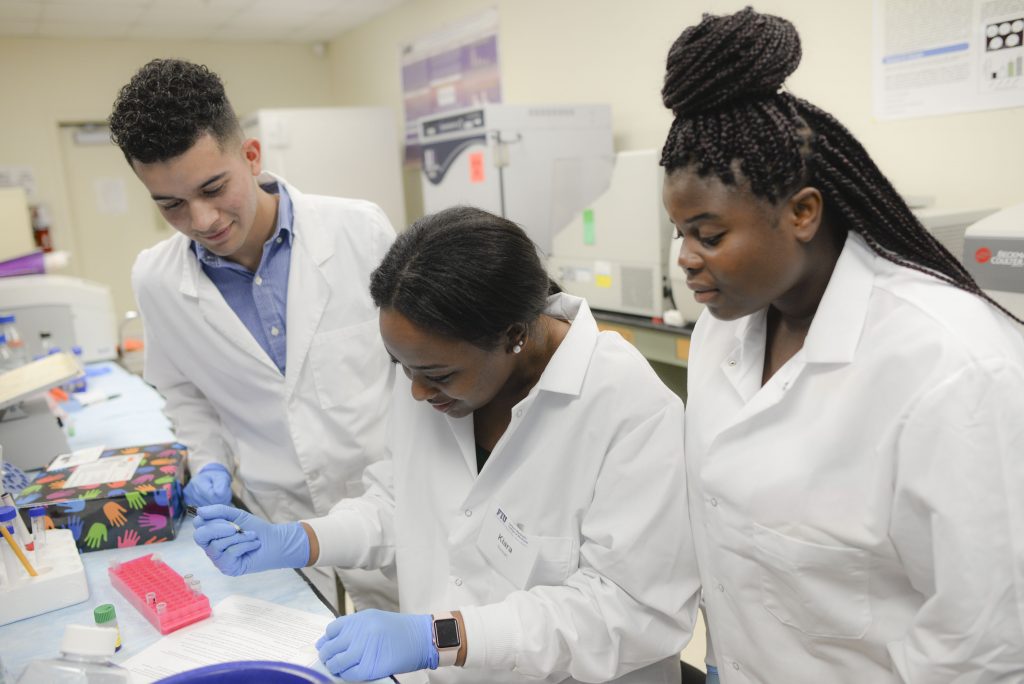
The latest group of students reporting for class at the Herbert Wertheim College of Medicine (HWCOM) looks a little too young to be in medical school — their average age is 19. But these young men and women are old enough to start preparing for a career in medicine, and that’s why they’re on campus. They are the new cohort of the HWCOM’s Florida Science Training and Research Fellowship (FSTAR) program.
Now in its sixth year, FSTAR was established by the college’s Office of Diversity and Inclusion to increase the number of highly qualified medical school applicants from minority groups who are underrepresented in medicine, particularly African-American and Latino students.
“There’s no particular formula that we’re looking for in a student other than, ‘what is your motivation?’ ‘Why do you want to be a doctor?’” says Cheryl Brewster, associate dean of the Office of Diversity and Inclusion. Brewster founded the program in 2011 and expanded the program in 2015 with a $2.1 million grant from the U.S. Department of Health and Human Services.
In the first year, the program only had one fellow. In 2016, 14 students participated. This year 13 pre-med students are taking part in the full-time summer intensive at Modesto Maidique A. Campus.
The students come from FIU and three partnering institutions: Florida Memorial University in Miami, Bethune-Cookman University in Daytona, and Louisiana’s Xavier University. Over the course of eight weeks, they receive a variety of clinical, research, and community-based experiences to try to help them decide which medical field to pursue.
Chloe Greene, a 19-year-old rising sophomore from Bethune-Cookman, says she’s wanted to go into medicine since she was a little girl, and hopes FSTAR will help her focus her options.
“I am excited to get experience, be put into the field and actually be hands-on to see what I have more of a passion for and am more drawn to,” Greene says.
FSTAR is designed to follow students through their undergraduate degree, providing support until their acceptance into medical school. Although it is still relatively young, the program is already producing “stars.”
“My first student is beginning her residency this year,” says Brewster proudly.
This post “FSTAR program prepares minority students for medical school” was originally published on FIU News.

